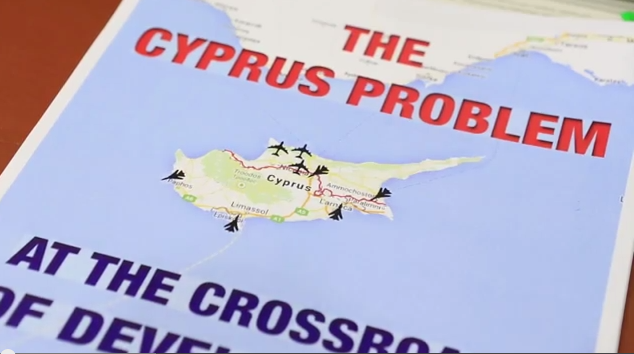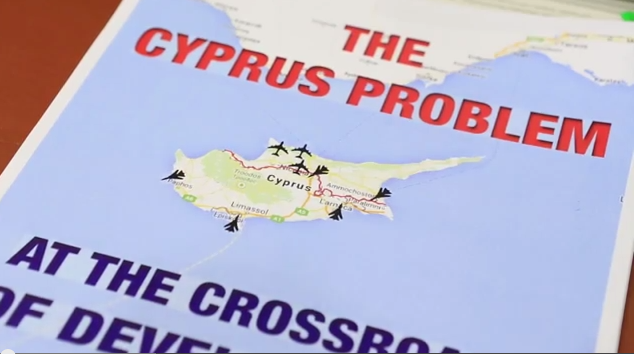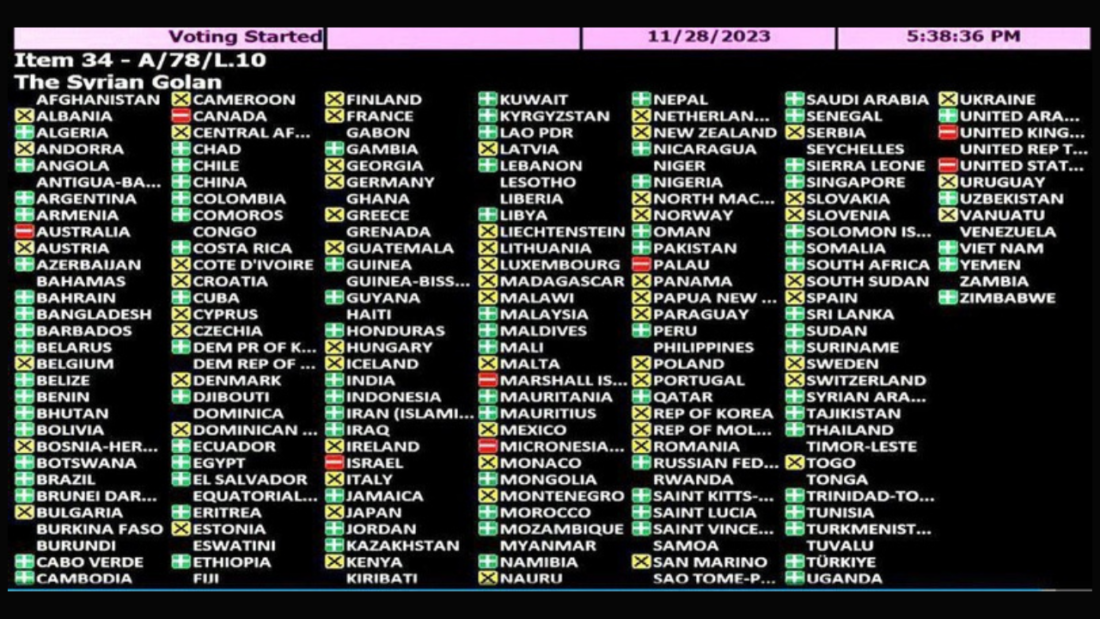
Speech of Andros Kyprianou, General Secretary of the C.C. of AKEL, at the Hearing “The Cyprus problem at the crossroads of developments”
6th November 2013, European Parliament, Brussels
Allow me to thank the Political Group of the European United Left-Nordic Green Left which is co-organising this timely and important hearing together with our Party, AKEL.
Today’s Hearing is of particular importance as at this moment in time persistent efforts are underway for the resumption of the talks aiming at the comprehensive and overall solution of the Cyprus problem. Our wish and goal is that this dialogue begins and arrives at a just, workable and viable solution.
To understand the current situation surrounding the Cyprus problem it is necessary to make a brief review of events of the past.
After the horrifying tragedy of 1974 and the fait accomplis of the Turkish invasion and occupation of almost 40% of the territory of the Republic of Cyprus, the solution of a bi-zonal bi-communal federation was agreed since 1977 as constituting the historical compromise between the two main communities of the island, Greek Cypriots and Turkish Cypriots. All these years we have had successive rounds of talks to solve the problem on the basis mentioned previously which unfortunately so far have not led to the desired result.
The main reason why the problem remains unsolved for so long was the continuing and long-lasting intransigence of Turkey and the Turkish Cypriot leadership who never respected the commitment for a compromise of federation and either directly or indirectly sought a confederal formation which in practice means two separate states on the island.
It is true that in 2004 we reached the stage of even separate referenda for a comprehensive solution; however the overwhelming majority of the Greek Cypriots rejected the proposed solution, given that this was not the outcome and result of free talks but rather the result of one-sided arbitration that did not satisfy their reasonable concerns. There followed a barren period that lasted until the Presidential elections of 2008. In these elections Demetris Christofias, former General Secretary of the C.C. of AKEL, was elected to the highest state office.
Loyal to the pre-election pledge he made that he will do everything on his part and what depends on him for the achievement of a just solution, Demetris Christofias immediately after his election sought and achieved the setting up of Working Groups to discuss the core and substantive issues of the Cyprus problem, as well as Technical Committees for day-to-day issues. The goal was the preparation of the ground for direct face-to-face talks between the leaders of the two communities, always under the aegis of the United Nations and within the framework of the UN Secretary-General’s good offices.
When the Working Groups and Technical Committees completed their work, the basis of the talks was reconfirmed with the two joint statements of Demetris Christofias and the former Turkish Cypriot leader Mr. Talat: namely a bi-zonal, bi-communal state with a single sovereignty, a single international personality and a single citizenship. Consequently, the necessary preparation was completed and the direct talks began in September 2008.
The talks lasted until April 2012 and are divided into two main periods. In the period Mr. Talat was in the leadership of the Turkish Cypriot community, despite the difficulties that did not allow as much progress as we would have liked, significant convergences were achieved on three chapters: on Governance and Power Sharing (this is the biggest and most complicated chapter with around 20 sub-chapters), the Economy and the European Union. These three chapters in essence were ready for a final horizontal negotiation between the chapters, something which of course left significant room for a final conclusion.
On the remaining three chapters (property issue, territorial and issues concerning security) substantial progress was not achieved. The reason was that the Turkish Cypriot side was extremely hesitant to discuss the territorial issue before the final stage, something which also put a brake on any real progress on the property issue since the two chapters are inextricably linked. At the same time it referred the chapter on security to a discussion with the guarantor powers. Of course the security issue can ultimately and finally be resolved with the participation of the guarantor powers within the framework of an enlarged international conference with the participation of the United Nations Security Council and the EU and given that it would be preceded by the solution of the internal aspects mentioned previously. However, this anything but excludes the discussion of the issue of security also between the two communities. On the contrary, if such a discussion would take place it would prepare properly the ground and consequently the chances for a successful conclusion of the conference would increase.
When Mr. Eroglou assumed the leadership of the Turkish Cypriot community in April 2010, the situation changed drastically. The UN Secretary-General himself in his meeting with the two leaders asked for a reconfirmation of the basis of the talks and their continuation from where they had left off with Mr. Talat. Demetris Christofias unequivocally accepted both of these preconditions and he did so despite the horrendous pressure exerted on him on the internal front for a withdrawal of supposedly unacceptable proposals. Eroglou replied vaguely and unclearly regarding the agreed basis of the negotiation and accepted in words the second precondition, that is to say, to continue from where we had left off. Subsequently, however, he broke his promise, did not accept the agreed basis and set aside all the substantive convergences that were not to his liking on the pretext that nothing is agreed until everything has been agreed.
I will not tire you by listing Mr. Eroglou´s endless inconsistencies. I will just refer to some characteristic examples. After two years of tough negotiations, we concluded with Mr. Talat, with regards the crucial issue of executive power, that while the Greek Cypriot side will accept a rotating presidency and a presidency with a presidential system, the Turkish Cypriot side will accept the cross-vote – and subsequently weighted vote, namely the election of a rotating President and Vice-President directly by the people as a whole instead of a separate election. It was a compromise that made the election of the President dependent on both communities.
Such a development will tear down and crush the separatist walls of division that were erected between the two communities on the basis of national origin. This development would have transferred any confrontation on to a political basis and level, as every other contemporary European state, solving the problem at its very roots.
Mr. Eroglou however chose from this package only what was to his liking, that is to say the rotating presidency and stubbornly refuses the cross vote. Therefore, at the point where we were within range of an agreement on the entire chapter of Governance, now everything is totally up in the air and vague.
The same occurred with a number of other important issues. Suffice to refer that Mr. Eroglou in reality is demanding the staying of all the Turkish settlers on the island, that is to say he is demanding from us that we accept the alteration in essence of the demographic structure which constitutes a war crime by Turkey and provides for the minimal restoration of Greek Cypriots to their homes and properties and others. Having all this given situation in mind, the talks could not proceed and in the end Mr. Eroglou gave the final blow, ending the discussion of the core aspects and limiting the discussion to only day-to-day issues.
In the specific conditions outlined previously, we arrived at the presidential elections of February. Mr. Anastasiades was elected as the new President of the Republic. However, his election coincided with the well-known unprecedented decisions of the Eurogroup which have had devastating consequences for the economy of Cyprus. Under the pressure of the evolving situation, the attempt to resume the negotiation procedure was postponed for some time. However, the procedure has already begun with meetings between the negotiators of the two sides aiming at issuing a joint statement.
I will not deny the fact that some of the pre-election positions given by Mr. Anastasiades cause us concern, but we have stated that we will judge him by his actions. In any case, if the Turkish Cypriot side continues not to respect in practice the long agreed basis of the negotiations, as well as the achieved convergences and insists on the logic of confederation, we cannot be optimistic.
This is exactly what is happening at this current phase and this is how the difficulty ascertained in the issuing of a joint statement, that will signal the resumption of the negotiation procedure, can be explained. Such a statement de facto must reconfirm the basis of the negotiation as it is set out by the relevant resolutions of the UN Security Council and in the Christofias-Talat joint statements. I reiterate that these categorically define that the solution will be based on a single united state, with a single sovereignty, a single international personality and a single citizenship.
However, the Turkish Cypriot side is not only trying to downplay this clear commitment but is setting additional terms and preconditions in order to accept a weaker text. It is absolutely essential that this obstacle is overcome, since it would be a tragic development and would transmit an extremely negative message if we were not able to agree on a joint statement about the long-agreed basis of the negotiations and solution of the Cyprus problem: the single sovereignty, single international personality and single citizenship are attributes of every state and cannot be undermined if we really are talking about a united state and not about two states. This at long last must be understood by all.
In conclusion, it would be an omission if I didn’t refer to the issue of natural gas since we are convinced that this can, with the proper and prudent handling of the issue, become a serious incentive for a solution, both for the Greek Cypriots and for the Turkish Cypriots. I grasp this opportunity to underline once again that the threats issued by Turkey violate fundamental principles of International Law and more specifically of the Law of the Seas. The Republic of Cyprus has declared its Exclusive Economic Zone and concluded agreements for the delineation of boundaries with neighbouring states, as well as proceeding to necessary authorizations. It has already proceeded to conduct two successful drillings, exercising its sovereign right always within the framework of the Treaty of the United Nations on the Law of the Sea and it will proceed regardless of threats.
At the same time, we state that our island’s natural resources, including the hydrocarbons, are the common inheritance of all Cypriots and therefore within the framework of the solution our Turkish Cypriot compatriots should be sure that they will also enjoy the benefits of this so valuable good. On our part, we have an equally strong incentive, since we know very well that stability is an important factor in these cases.
At this point I would like to mention that during the talks with Mr. Talat, although we did not involve the issue of the hydrocarbons, significant convergences had been registered which in case of a solution of the Cyprus problem very little room would have been left for a further regulation of the natural gas issue. This is the case because during the discussion on the competences it had been agreed that all the maritime areas without exception (territorial waters, adjacent areas, the exclusive economic zone and continental shelf) will be the exclusive competence of the federal state and not of the federated entities. In addition, the settlement of disputes with neighbouring states and the solution of the relevant differences in line with the UN Treaty on the Law of the Seas had been agreed as a federal competency. Finally, a convergence had been registered that the natural resources, which of course include the natural gas, will constitute federal competences, whilst agreement had been reached also on how the federal revenues would be distributed and therefore in relation to the revenues from the natural gas. This highly significant convergence itself illustrates the necessity of safeguarding the convergences that had been achieved and of continuing the negotiations from where they had left off.
Today Mr. Eroglou states that he accepts the convergences and that he agrees to continue from where we had left off. I once again remind you all that for three whole years former President Demetris Christofias was calling on Mr. Eroglou to respect the pledge he had given before the UN Secretary-General himself for the continuation of the talks from where they had left off and on the agreed basis. Although Mr. Eroglou says that he respects the convergences and the agreed basis, at the same time he refers to a two state solution and does not accept a single sovereignty, a single international personality and a single citizenship, with the result being that the talks cannot begin yet. It is imperative that the Turkish Cypriot side complies with the agreed basis because this is the only way the issuing of a joint statement is feasible and fully-fledged negotiations can be resumed aiming at a comprehensive solution. Such a development serves the well-intentioned interests of Cyprus and our people as a whole, of the two communities of the island, of Greece, Turkey, the EU itself and peace and stability in the wider and extremely sensitive region.





